July 2021
“Hello Everyone! It is with great pleasure and honor that I introduce myself as Chef Kelcy Scolnick, the new Farm Chef and Kitchen Manager for the Wright-Locke Farm All Seasons Barn! I am so grateful to be joining this amazing farm and working with some seriously passionate people. Already in my first week I have seen how important food, community, and education are at the farm and know that I am going to fit in quite well.
Accepting this job has been a 10 year journey for me that started as a nanny working in the kitchen with the kids. I was there for 5 years and in that time I saw my littles go from simply making popsicles or helping me layer a lasagna to them being able to make their own pasta and sauce from scratch and bake angel food cake (no easy feat). It was also during this time that I started to dive deeper into exploring food education and programming in my area. I stumbled across Mill City Grows and their family food education programs and that was it for me. I was hooked on teaching people how to cook amazing fresh food and knew what I wanted to do with my life.
After that realization I have been working steadily to build my name and business. I’ve worked with a local kitchen business to create wonderful farm to table cooking classes that focus on working together as a team to make a beautiful meal that we would all sit down and enjoy together as friends, even if we all had just met. I worked with different food education companies to run classes for people of all ages ranging from 2 years old to 90 years old. And of course I have continued as a nanny, working closely in the kitchen with all the children I have had the pleasure of caring for, helping them cultivate their love of cooking and respect for food.
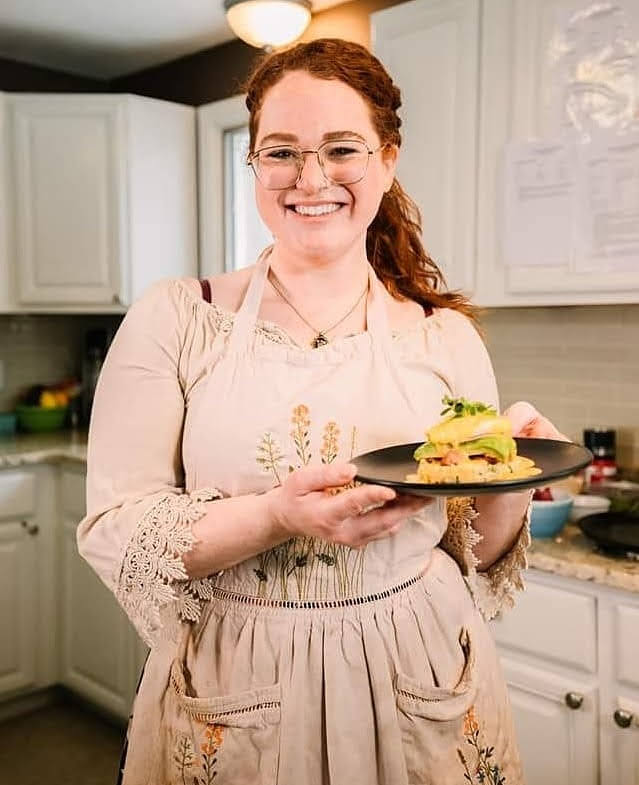

When the pandemic hit I had to pivot (like so many of us) and decided to work towards leaving nannying to work full time in food and education. I started my own business, Chef Kelcy, and through this I have taught people all over the world how to cook from the comfort of their own home and helped them become more comfortable and confident home cooks; truly a rewarding experience! Now that the world is opening back up I’ve begun private home dinner parties and kids cooking events. I’ve also expanded my business to include baking for local shops and, as of this past weekend, had my very first (and very successful) pop-up market!
And now, after this incredible journey, I get to come to Wright-Locke Farm and literally live out my dream of creating food educational programing and events that are centered on eating with the seasons, respecting our food, farmers, and land and most importantly connecting with the community. I can’t wait to get the kitchen up and running, start hosting some amazing events and workshops, and have the chance to meet all of you wonderful people!
As we swing into summer and I plant my feet here at Wright-Locke Farm, I have decided to share with all of you one of my all time favorite summer recipes, Brown Butter Blueberry Peach Crumble. Blueberries and peaches are the stars of this simple dessert that always reminds me of being barefoot in the fields picking fresh fruit and enjoying the sun on my shoulders.
I invite all of you to partake in this wonderful ritual to gather your own ingredients, but if you want to check out Farm to Go blueberries are in and peaches start this week!
Drop a comment if you have any questions or want to let me know how your dessert came out.
If you want more information on me or to join my mailing list, check out my website here. I can’t wait to see you all in the kitchen soon and happy cooking friends!
~ Chef Kelcy (Email: farmchef@wlfarm.org)
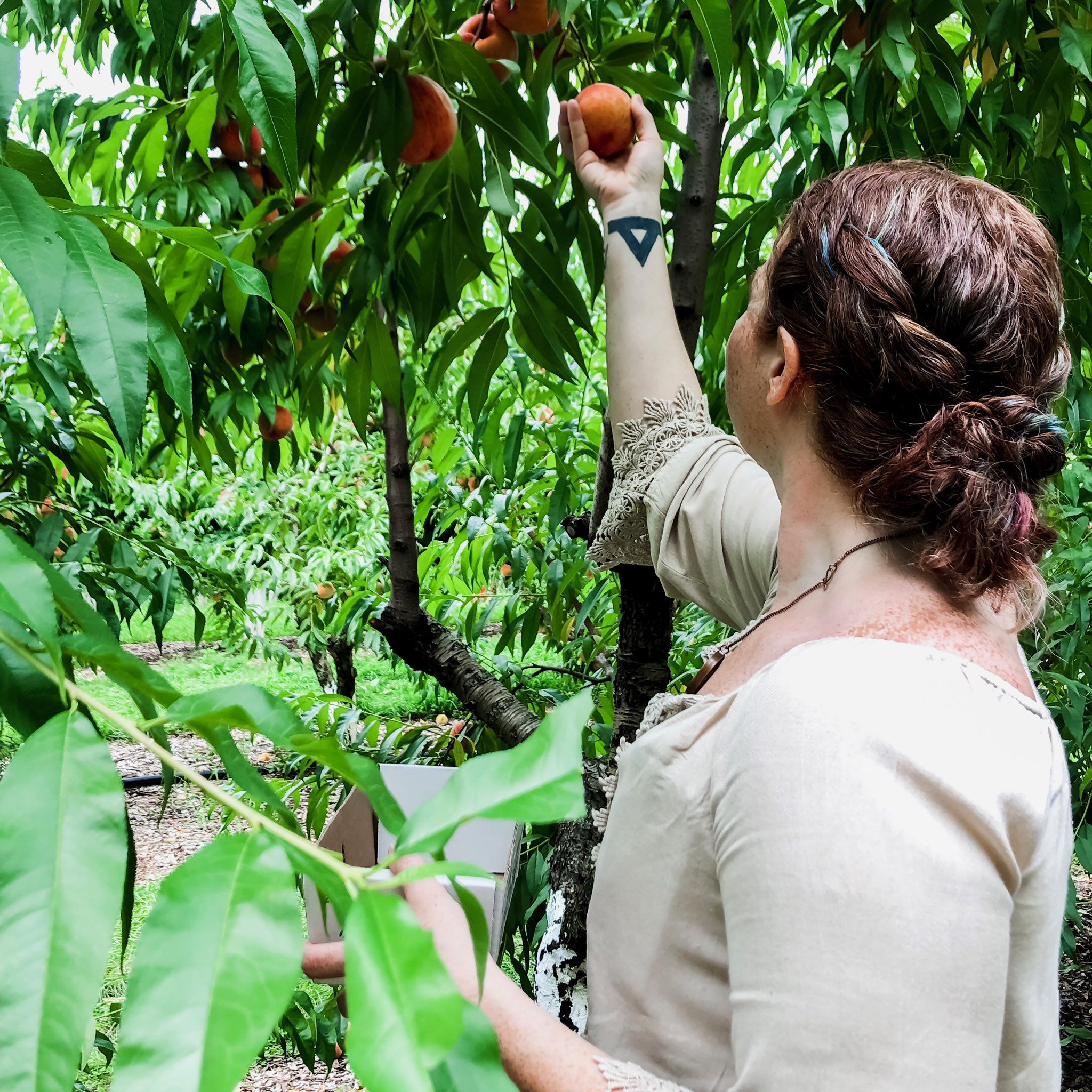
Brown Butter Summer Crisp
By: Chef Kelcy Scolnick
Brown butter and thai basil give this classic summer dessert and new and unexpected twist
350° for 20-30 minutes
Ingredients
For the filling
- 10 peaches peeled and sliced
- 1 pint blueberries
- 1T brown sugar
- ¼ cup flour
- zest of 1 lemon
- ½ t vanilla bean paste
For the crumb
- 8T butter browned
- 2 cups old fashioned oats
- ½ cup flour
- ¼ cup brown sugar
- ½ t cinnamon
- ½ t salt
- pinch fresh nutmeg
For the topping
- 1 cup heavy whipping cream
- ½ t vanilla bean paste
- 2 T powdered sugar or honey
- ¼ cup chiffonade thai basil
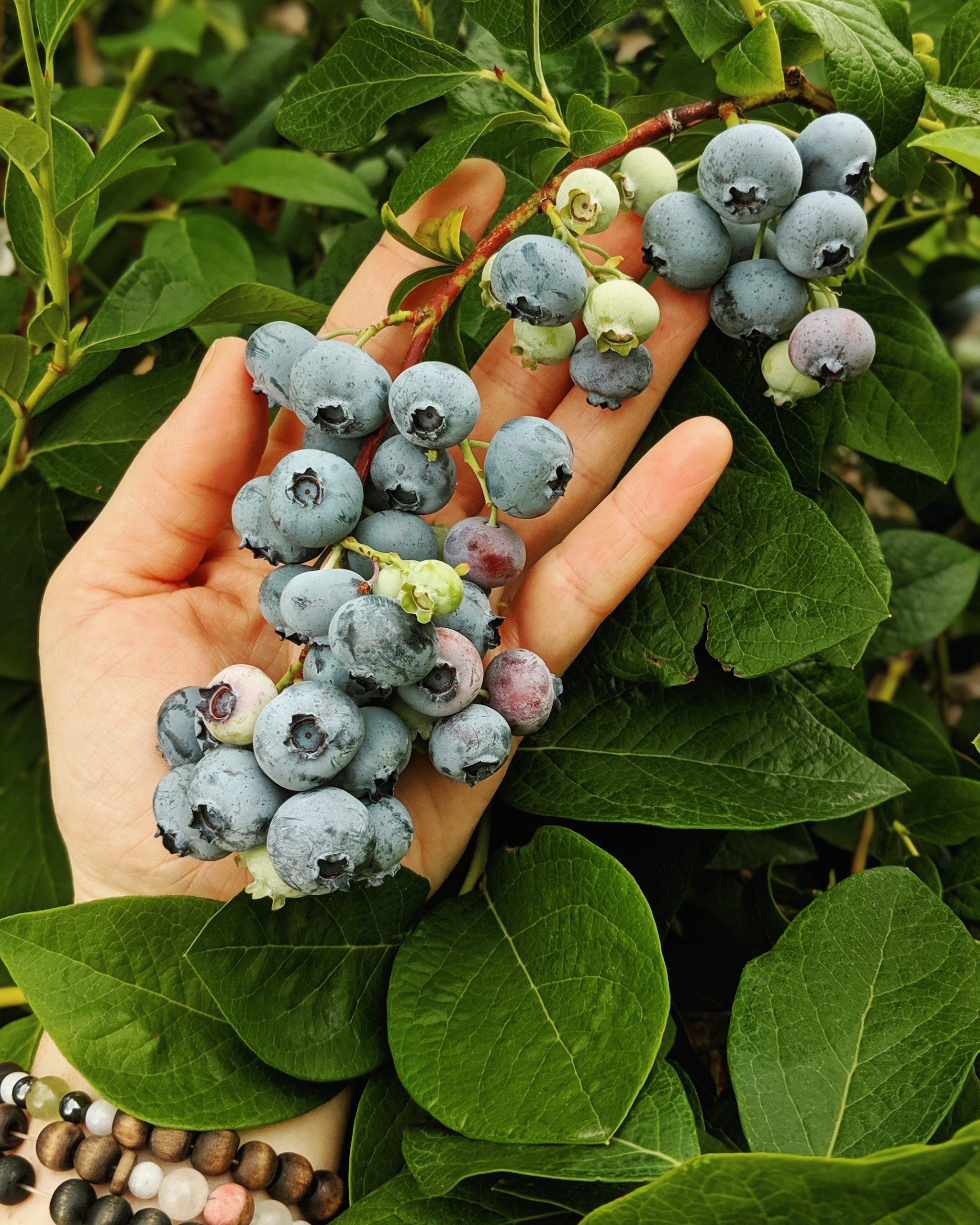
Directions
- Preheat the oven to 350°
- Start by peeling your peaches. To do this, slice an x on the bottom and put them in a pot of boiling water for 10 seconds. Remove and immediately put in an ice bath. Once they are cool the skin will peel right off!
- Mix sliced peaches, blueberries, and sugar in a bowl and set aside for at least 30 minutes (this allows the juice to start coming out of the fruit) as you make your crumble
- Make the crumb
- Start your crumb with browning your butter. To do this place the butter is a light colored skillet or small saucepan (this ensures you can see the coloring of the butter) and cook it at a low temperature until you see small brown flakes starting to form on the bottom of the pan
- Quickly remove from heat to keep the butter from burning and mix it with the rest of the crumb ingredients.
- Once your crumble is made go back to the peach and blueberry filling and add flour, lemon zest and vanilla, stirring until flour is absorbed
- Place filling in a greased baking dish, top with crumble (which you lightly pat down) and bake at 350 for 20- 30 minutes.
- Make the whipped topping by combining the cream, vanilla bean paste, and sweetener of choice and whipping it until you get the consistency of soft ice cream.
- One you see the fruit bubbling and the crumb beginning to brown, remove your beautiful an amazing smelling crumble from the oven and let it cool a bit before serving.
- Top with basil and whipped cream, enjoy!
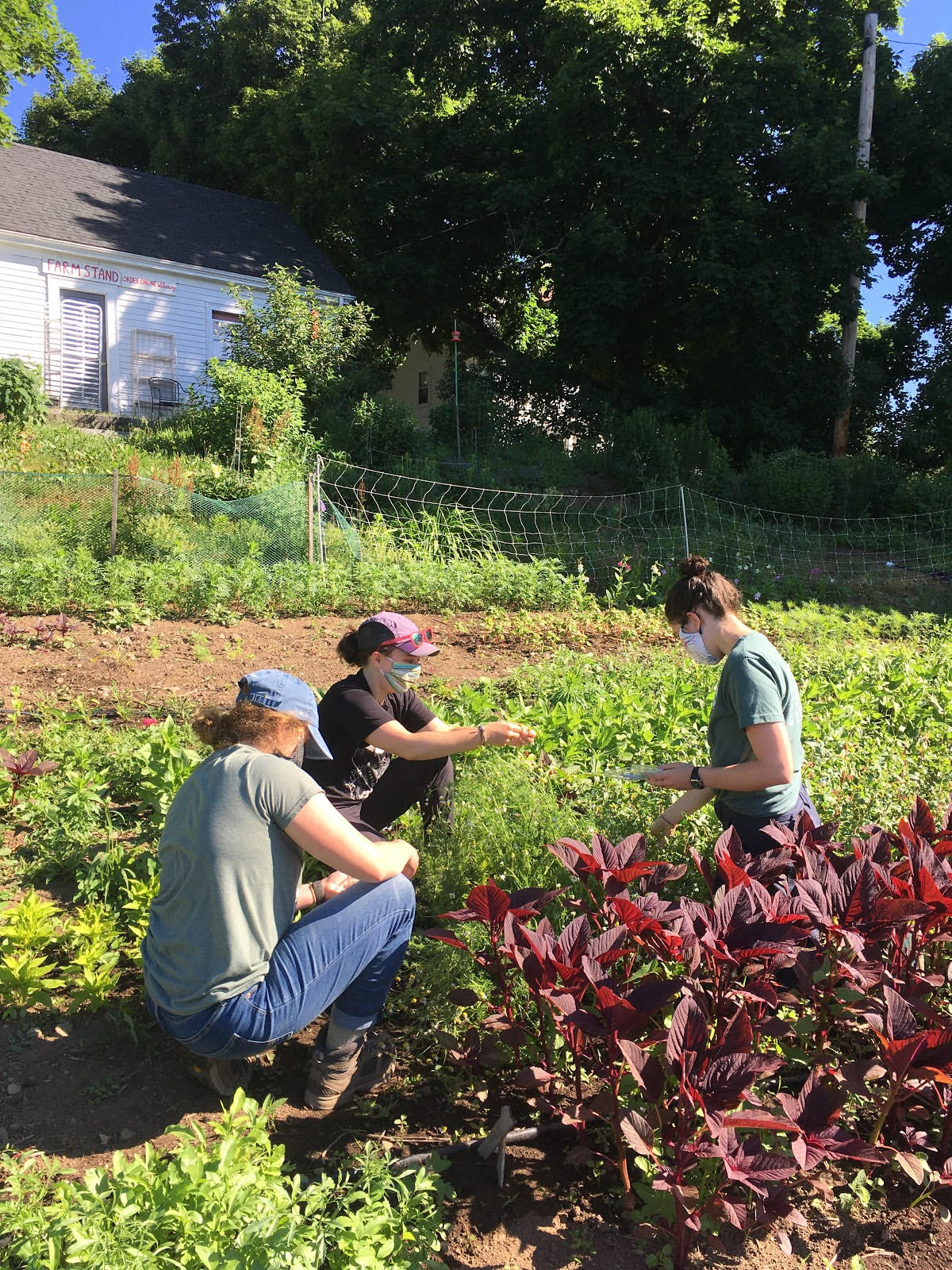
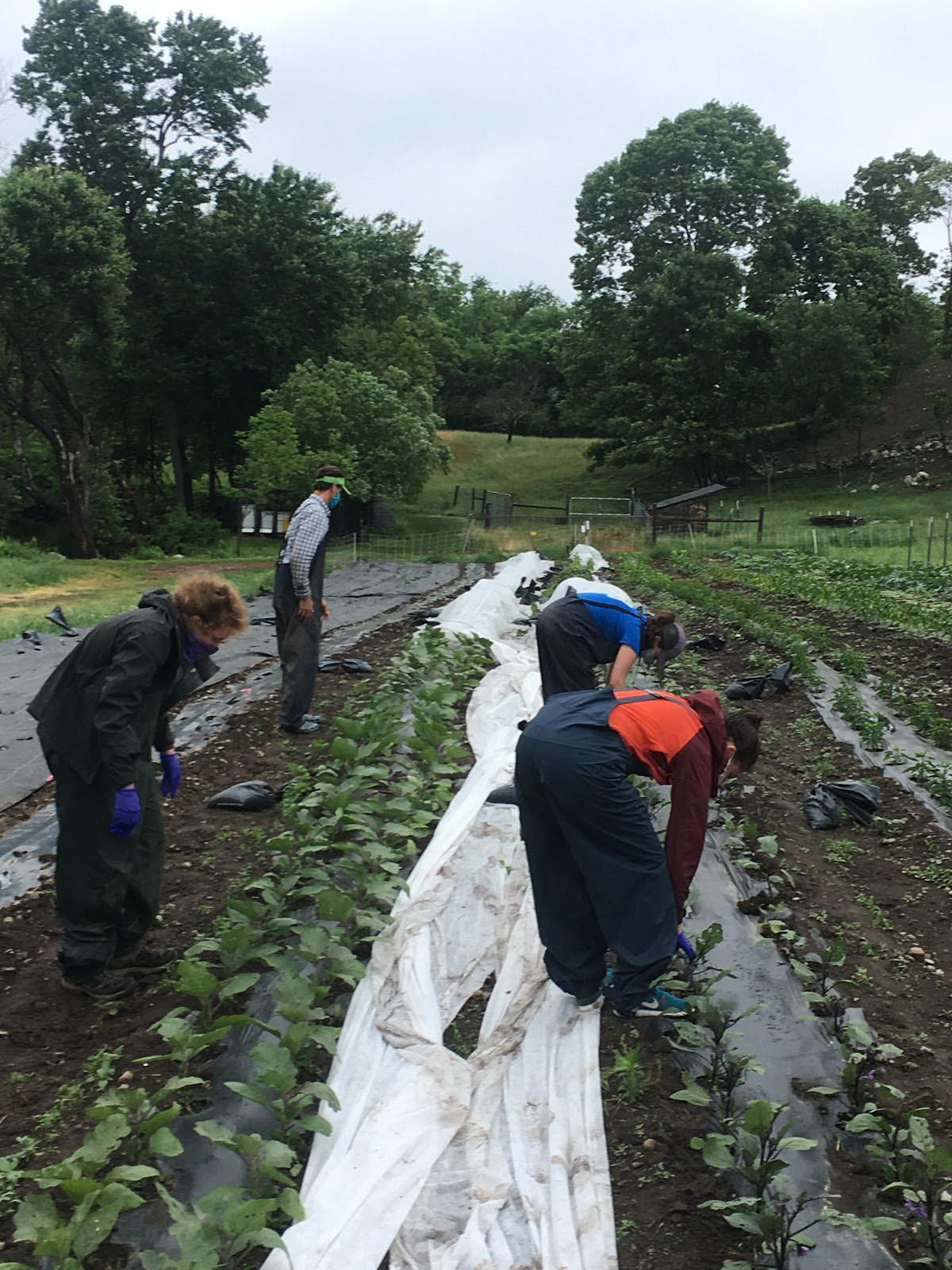
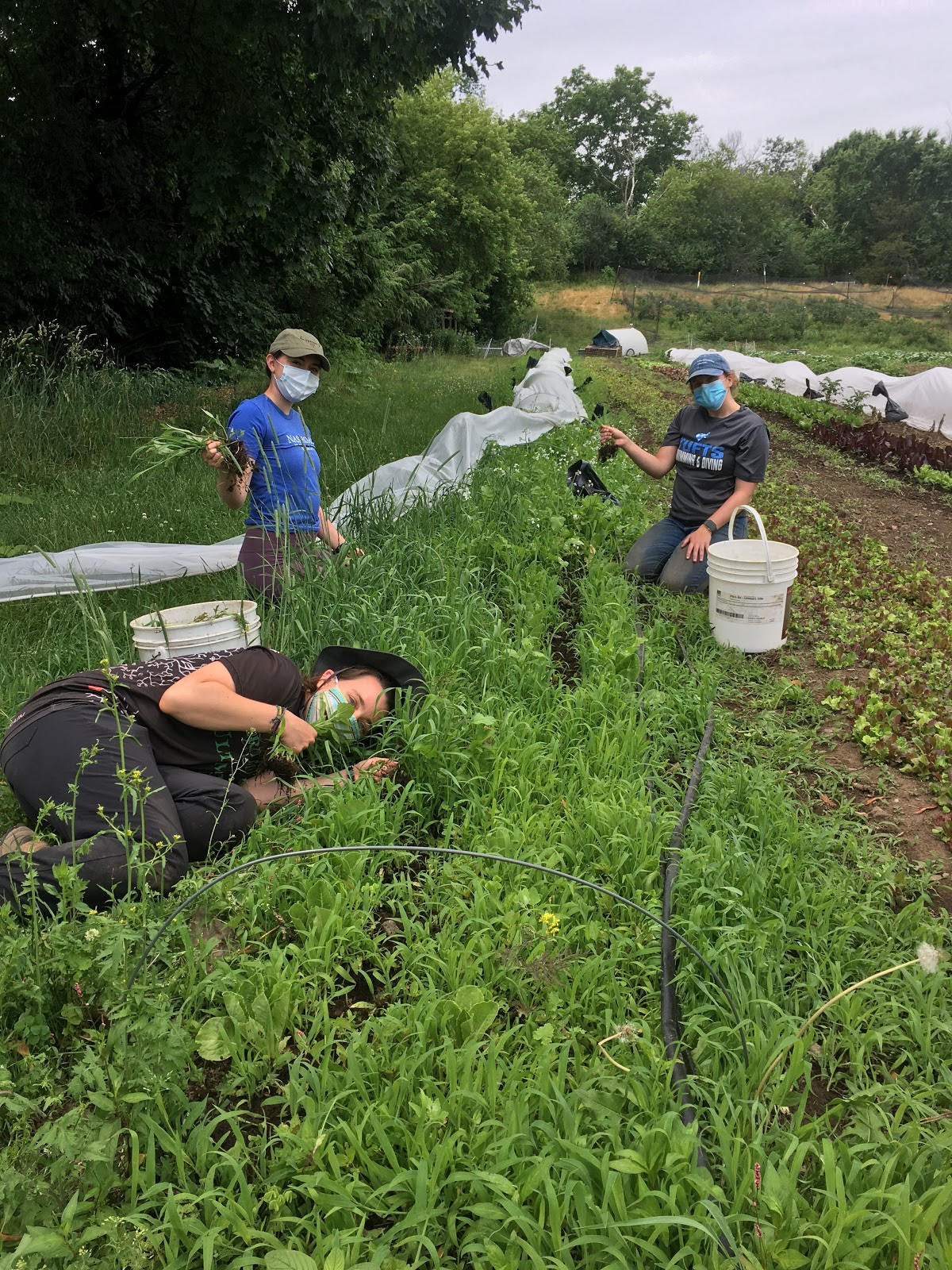
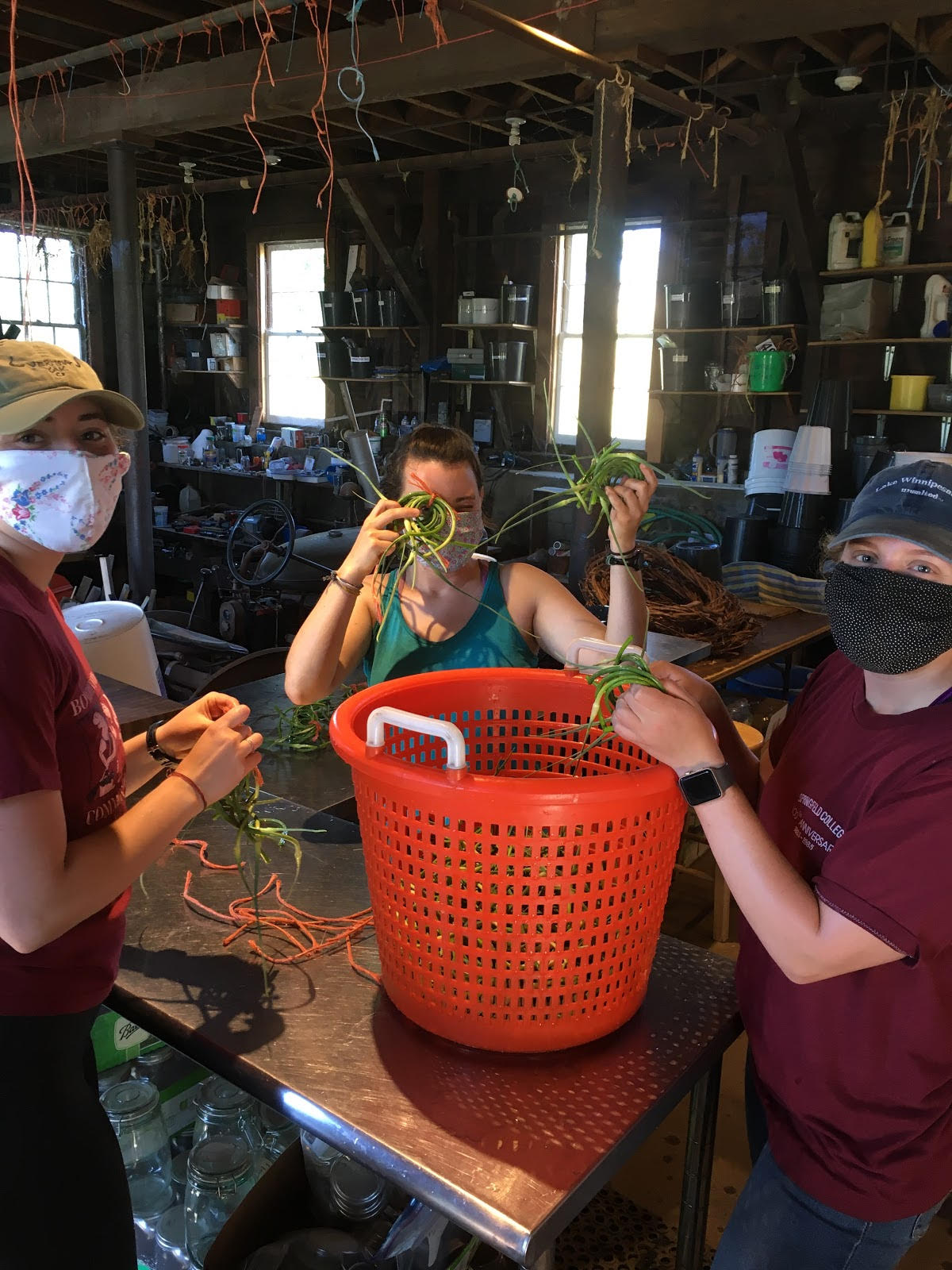
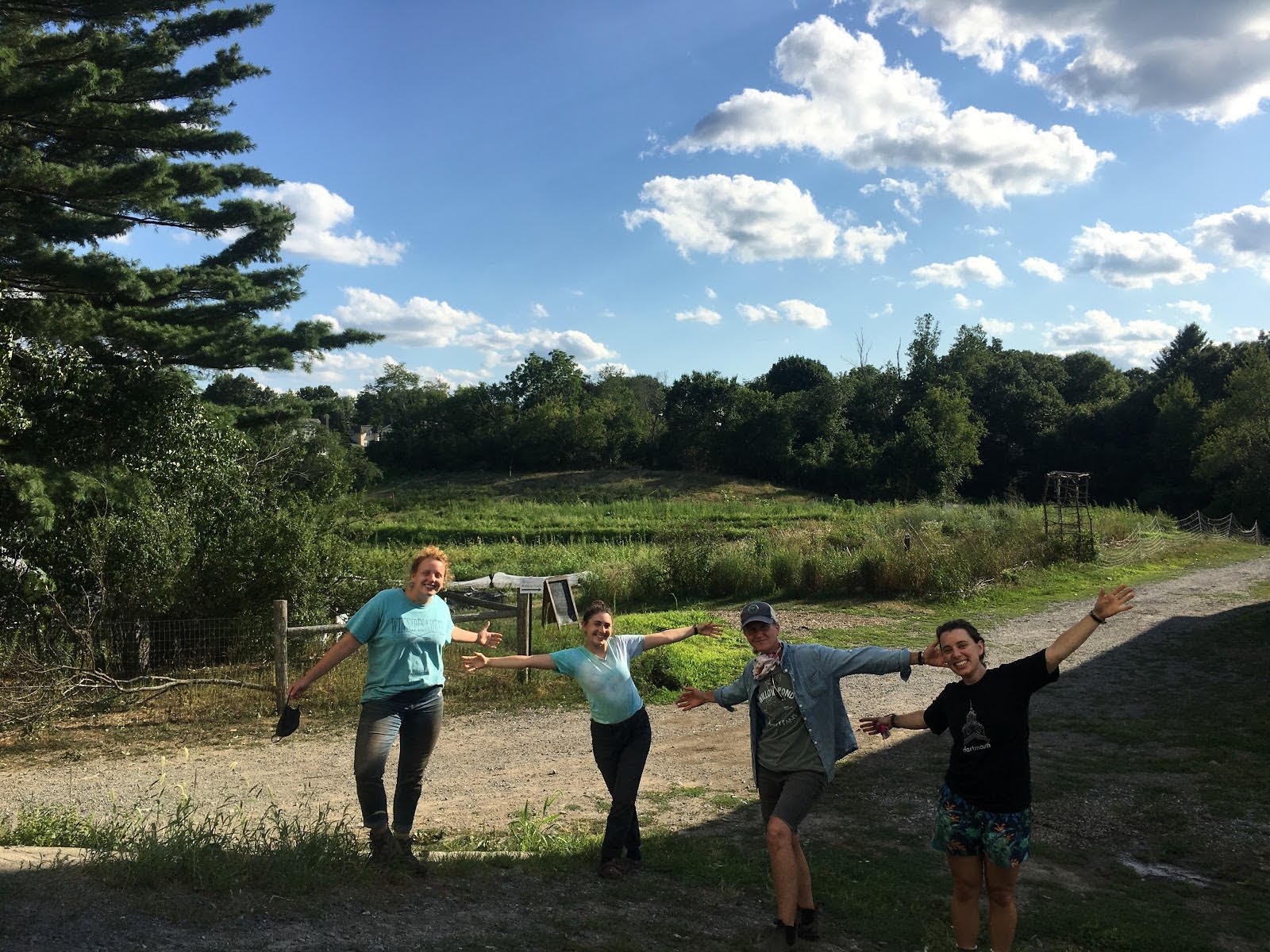
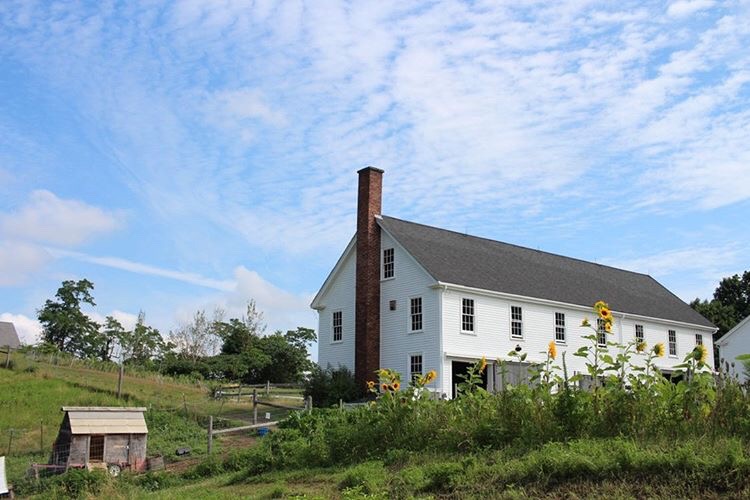

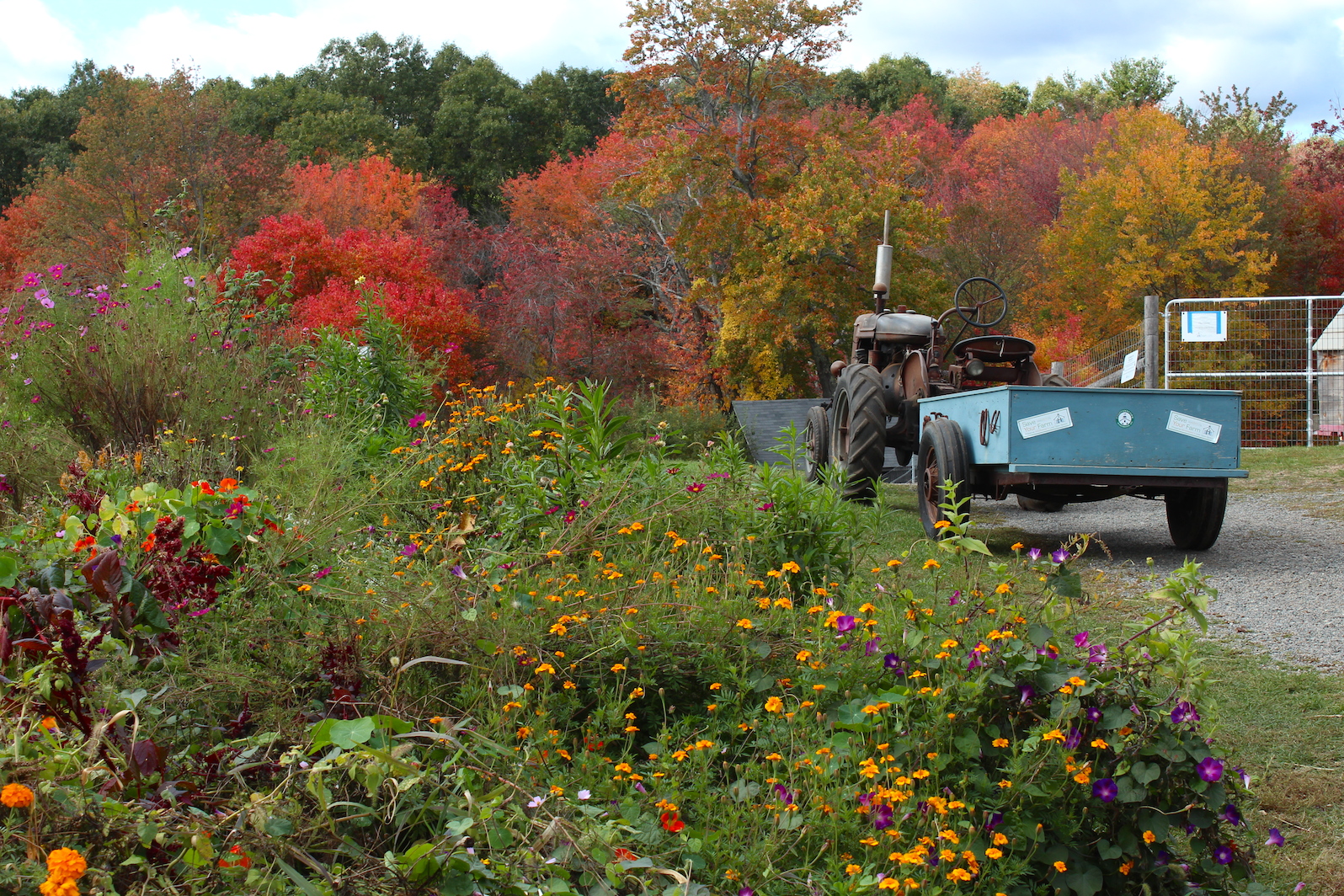
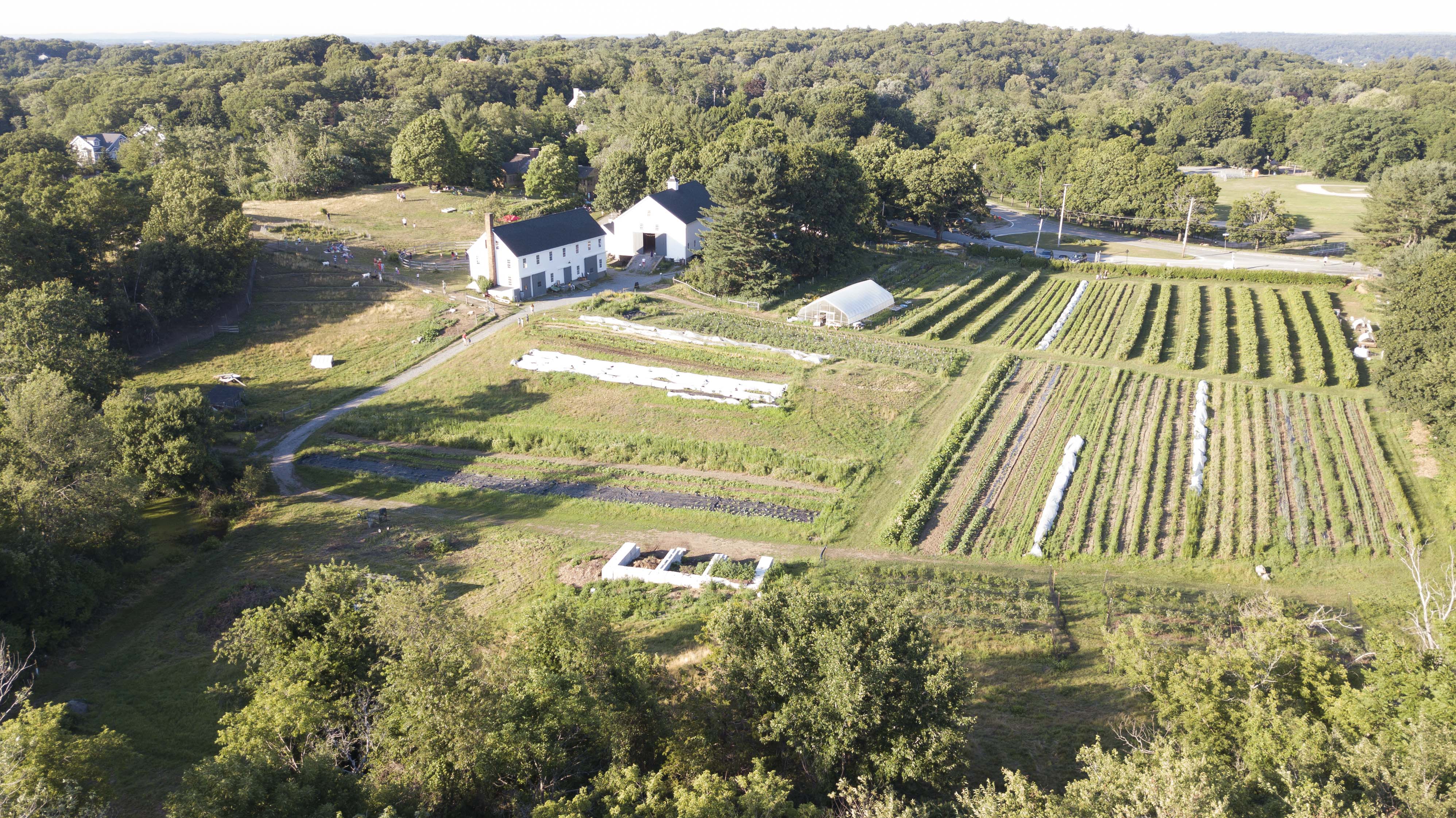
 Wright-Locke Farm put the roof on its new 8,000-square-foot barn in February. The mechanical systems and doors should be installed by the end of this month. JONATHAN WIGGS/GLOBE STAFF
Wright-Locke Farm put the roof on its new 8,000-square-foot barn in February. The mechanical systems and doors should be installed by the end of this month. JONATHAN WIGGS/GLOBE STAFF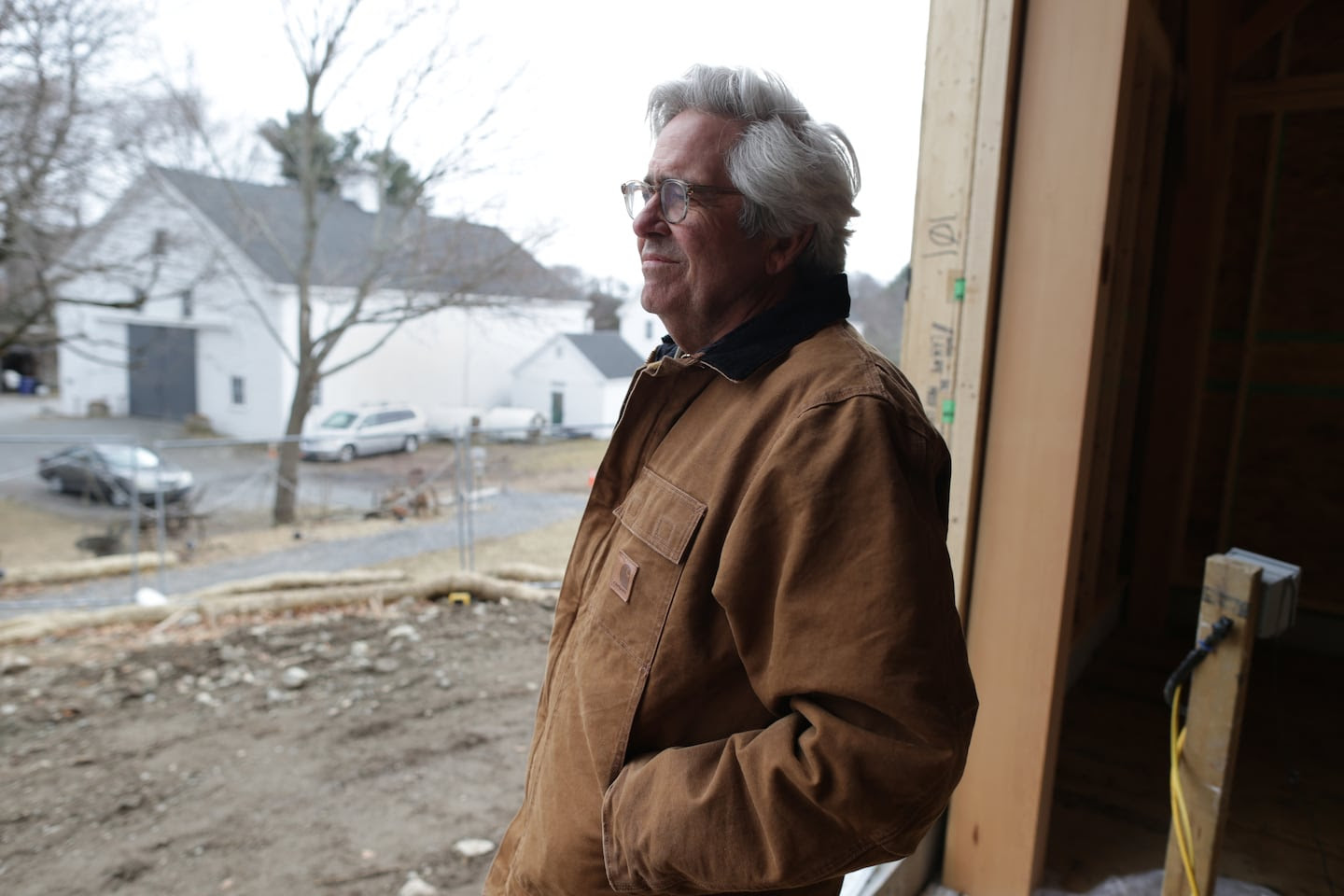 “Winchester is a very densely developed suburb,” said Philip “Archie” McIntyre, executive director of the Wright-Locke Farm Conservancy, which oversees farm operations. “This is our only remaining farm, so it’s really struck a chord in the community as a treasured resource that’s not only open space but it’s active open space — people can come and get involved.” JONATHAN WIGGS/GLOBE STAFF
“Winchester is a very densely developed suburb,” said Philip “Archie” McIntyre, executive director of the Wright-Locke Farm Conservancy, which oversees farm operations. “This is our only remaining farm, so it’s really struck a chord in the community as a treasured resource that’s not only open space but it’s active open space — people can come and get involved.” JONATHAN WIGGS/GLOBE STAFF